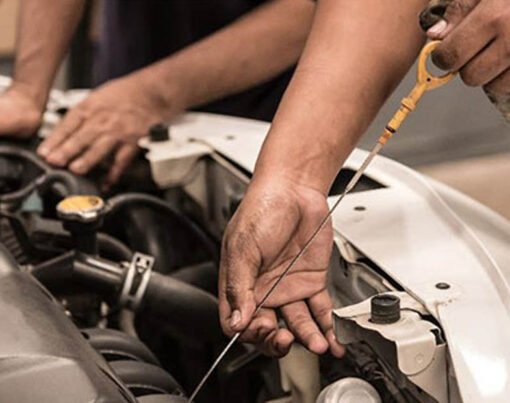When buying a salvage car, one of the most important factors to consider is its mileage. There are several ways to verify the car’s odometer reading, for example, by running a VIN lookup. If you need more vehicle details, like fuel efficiency, the manufacturer’s suggested retail price, a list of standard and optional equipment, etc., consider checking the window sticker by VIN with a reliable service provider like ClearVin.
When buying a salvage car, one of the most important factors to consider is its mileage. There are several ways to verify the car’s odometer reading, for example, by running a VIN lookup. If you need more vehicle details, like fuel efficiency, the manufacturer’s suggested retail price, a list of standard and optional equipment, etc., consider checking the window sticker by VIN with a reliable service provider like ClearVin.
However, simply revealing the number of miles or kilometers on the odometer is not enough. Several factors that affect the mileage of a car, and it is important to take them into account when making a purchase decision.
Normal Car Mileage: What You Need to Know
To determine the significance of a car’s mileage, we recommend you consider the following factors:
- Make and model. The brand, make, and model of a car can have a significant impact on its mileage relevance. For example, some vehicle models are known for their durability and can drive more than 125,000 miles (200,000 kilometers) without any problems.
- Driver’s experience and style. How a driver uses their car can greatly affect mileage. Someone who often drives long distances at high speeds will wear out the car faster than someone who only drives short distances at low speeds.
- Road conditions. The roads a car drives on also matter. Vehicles used mostly on smooth, paved roads will wear out less than those driven on rough, off-road, or dirt paths.
- Maintenance. Taking your car for regular check-ups and giving it proper care can greatly extend its life and reduce the mileage impact. A well-maintained car tends to last longer compared to one that’s not cared for properly.
Not only vehicle mileage, but also factors we’ve reviewed above have a significant impact on the car’s service life.
What Is Considered Normal Mileage for a Used Car?
On average, cars accumulate 10,000 to 12,000 miles (15,000–20,000 kilometers) per year. Therefore, used cars with an annual average lower than this range can be considered to have good mileage. To calculate the annual average, divide the odometer reading by the car’s age in years.
However, this figure can vary significantly depending on the make and model of the car, as well as the experience and style of the driver, road conditions, and maintenance history. When choosing a used car, you shouldn’t focus on mileage alone. Better consider the number of owners, the condition of the car, and the price.
Here are some things to keep in mind when evaluating the mileage:
- Don’t trust the odometer. Don’t solely rely on the odometer reading, as it can be easily manipulated. Instead, carefully assess the overall condition of the car. Look for signs of wear and tear, inconsistencies in maintenance records, and any indications of previous accidents or repairs.
- Know the make and model. Research the make and model of the car you’re interested in to understand typical mileage and potential weaknesses. Use such trustworthy platforms as J.D. Power and Kelley Blue Book to gain more details about any specific vehicle you’re interested in. This will help you identify car strengths and issues before making a purchase.
- Take into account the vehicle’s history. If you want to buy a used car, always run a VIN lookup to get a comprehensive vehicle history report. This allows for revealing such details as the car title status, the number of owners, the vehicle specs, accident history, recall records, etc. Any discrepancies and suspicious moments in the report should raise doubts.
- Check the vehicle’s technical condition. Thoroughly inspect the technical condition of the car, paying close attention to the engine, transmission, brakes, and tires. Look for any signs of wear, leaks, or unusual noises that could indicate underlying issues. Additionally, check the vehicle’s history report for any past accidents or major repairs. If you’re unsure about your ability to assess the car’s condition accurately, it’s wise to opt for a professional inspection. A certified mechanic can provide a detailed evaluation, identifying any potential problems and offering recommendations for repairs or maintenance.
By following these simple recommendations, you can ensure a positive used car buying experience and save money on deals.
Wrapping Up
When purchasing a used car, consider the car type, mileage, condition, and price. Ensure the price aligns with these factors, and question any inconsistencies. Don’t solely rely on the odometer reading, as the car’s odometer can be tampered with. Instead, thoroughly inspect the overall condition of the car. Keep in mind that mileage can vary based on the car type and usage, so examine the car’s history and condition carefully. This will help you avoid potential problems and make a more informed decision.










